Related Research Articles
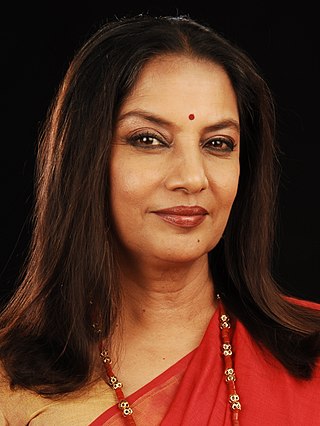
Shabana Azmi is an Indian actress of film, television and theatre. Her career in the Hindi film industry has spanned over 160 films, mostly within independent and neorealist parallel cinema, though her work extended to mainstream films as well as a number of foreign projects. One of India's most acclaimed actresses, Azmi is known for her portrayals of distinctive, often unconventional female characters across several genres. She has won a record five National Film Awards for Best Actress, in addition to five Filmfare Awards and several international accolades. The Government of India honoured her with the Padma Shri in 1998 and the Padma Bhushan in 2012.

LisaGay Hamilton is an American actress who has portrayed roles in films, television, and on stage. She is best known for her role as secretary/lawyer Rebecca Washington on the ABC legal drama The Practice (1997–2003). She also portrayed Melissa Thoreau on the TNT comedy-drama Men of a Certain Age (2009-2011), Celia Jones on the Netflix series House of Cards (2016), Suzanne Simms on the Hulu series Chance (2016), and Kayla Price on the Hulu series The First (2018).
Women's cinema primarily describes cinematic works directed by women filmmakers. The works themselves do not have to be stories specifically about women and the target audience can be varied.
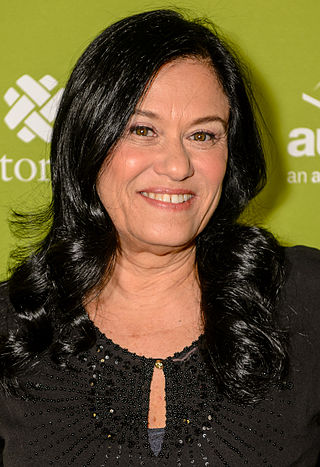
Barbara Kopple is an American film director known primarily for her documentary work. She is credited with pioneering a renaissance of cinema vérité, and bringing the historic french style to a modern American audience.
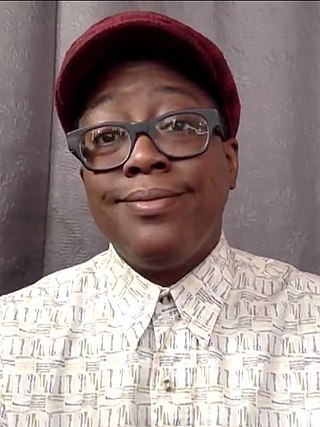
Cheryl Dunye is a Liberian-American film director, producer, screenwriter, editor and actress. Dunye's work often concerns themes of race, sexuality, and gender, particularly issues relating to black lesbians. She is known as the first out black lesbian to ever direct a feature film with her 1996 film The Watermelon Woman. She runs the production company Jingletown Films based in Oakland California.

Franny Armstrong is a British documentary film director working for her own company, Spanner Films, and a former drummer with indie pop group The Band of Holy Joy. She is best known for three films: The Age of Stupid, a reflection from 2055 about climate change, McLibel, about the McDonald's court case and Drowned Out, following the fight against the Narmada Dam Project.

Lauren Lazin is an American filmmaker whose documentaries have been nominated for the Emmys multiple times. She directed and produced the 2005 Oscar-nominated documentary film Tupac: Resurrection.
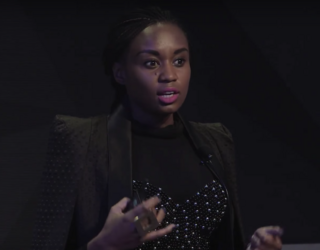
Wanuri Kahiu is a Kenyan film director, producer, and author. She is considered to be “one of Africa's most aspiring directors, being part of a new, vibrant crop of talents representing contemporary African culture”. She has received several awards and nominations for the films which she directed, including the awards for Best Director, Best Screenplay and Best Picture at the Africa Movie Academy Awards in 2009 for her dramatic feature film From a Whisper. She is also the co-founder of AFROBUBBLEGUM, a media collective dedicated to supporting African art for its own sake.
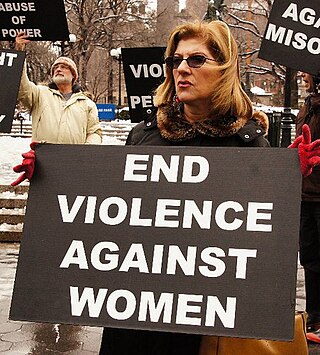
Tami Kashia Gold is a documentary filmmaker, visual artist and educator. She is also a professor at Hunter College of the City University of New York in the Department of Film and Media Studies.

Zeinabu irene Davis is an American filmmaker and professor in the Department of Communication at the University of California, San Diego. In 1985, she received her M.A in African studies at UCLA and went on to earn her M.F.A in Film and Television production in 1989. Davis is known as one of the graduates and filmmakers of the L.A. Rebellion. The L.A. Rebellion refers to the first African-American students who studied film at UCLA. Through their collective efforts, they sought to put an end to the prejudices of Hollywood by creating experimental and unconventional films. The main goal of these films was to create original Black stories and bring them to the main screens. Her works in film include short narratives, documentaries and experimental films that focus heavily on the African American female perspective.
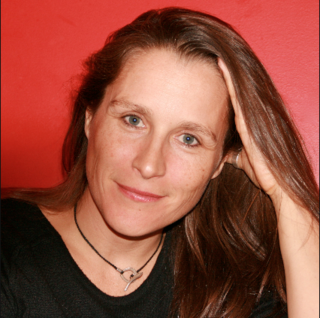
Catherine Gund is an Emmy nominated and Oscar shortlisted producer, director, writer, and activist who founded Aubin Pictures in 1996. Gund's films have screened around the world in festivals, theaters, museums, and schools; on PBS, HBO, Paramount+/MTV Documentary Films, and the Discovery Channel, Sundance Channel, Netflix, and Amazon Prime. She is a voting member of AMPAS, The Academy of Motion Picture Arts and Sciences.
Alexandra Jeanne "Alex" Juhasz is a feminist writer and theorist of media production.

Imruh Bakari is a film maker and writer born in 1950 on St Kitts, who is also referred to as Imruh Bakari Caesar or Imruh Caesar. He currently teaches Film Studies at the University of Winchester. He works in the UK and a number of African countries in the area of culture and the creative industries.
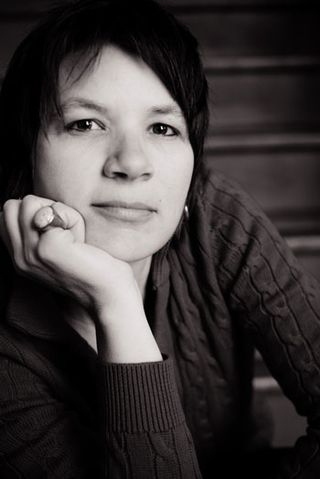
Liz Marshall is a Canadian filmmaker based in Toronto. Since the 1990s, she has directed and produced independent projects and been part of film and television teams, creating broadcast, theatrical, campaign and cross-platform documentaries shot around the world. Marshall's feature length documentaries largely focus on social justice and environmental themes through strong characters. She is known for The Ghosts in Our Machine and for Water on the Table, for which she also produced impact and engagement campaigns, and attended many global events as a public speaker. Water on the Table features water rights activist, author and public figure Maude Barlow. The Ghosts in Our Machine features animal rights activist, photojournalist and author Jo-Anne McArthur.
Joan Alicia Shenton is a British broadcaster who has produced and presented programmes for radio and television.

Roya Sadat is an Afghan film producer and director. She was the first woman director in the history of Afghan cinema in the post-Taliban era, and ventured into making feature films and documentaries on the theme of injustice and restrictions imposed on women. Following the fall of the Taliban regime in the country, she made her debut feature film Three Dots. For this film she received six of nine awards which included as best director and best film. In 2003,A Letter to the President her most famous film that received many international awards, she and her sister Alka Sadat established the Roya Film House and under this banner produced more than 30 documentaries and feature films and TV series. She is now involved to direct the opera of A Thousand Splendid Suns for the Seattle Opera and she is during pre production of her 2nd feature film Forgotten History.
Ruhi Hamid is a British filmmaker, born in Tanzania of Asian origin, who has made award-winning documentaries for the BBC, Channel 4, Al Jazeera International, and other UK, US and European broadcasters. Her films have covered international stories — in Africa, Asia, Europe, South America, the USA, and the Middle East — dealing with social and political issues about women religion, poverty, health, and human rights. A graduate of London's Royal College of Art, she is also a graphic designer.

Tanzania's film industry, also known as Swahiliwood or Bongo movie and Bongowood, was established around 2001.
Edwina Spicer is a Zimbabwean journalist and documentary filmmaker.

African American cinema is loosely classified as films made by, for, or about Black Americans. They are an example of Black film. Historically, African American films have been made with African-American casts and marketed to African-American audiences. The production team and director were sometimes also African American. More recently, Black films featuring multicultural casts aimed at multicultural audiences have also included American Blackness as an essential aspect of the storyline.
References
- 1 2 3 4 5 Bryce, Jane (2010). "Outside the Machine? Donor Values and the Case of Film in Tanzania". In Mahir Saul; Ralph A. Austen (eds.). Viewing African Cinema in the Twenty-First Century: Art Films and the Nollywood Video Revolution. Ohio University Press. pp. 165–72. ISBN 978-0-8214-1931-1.